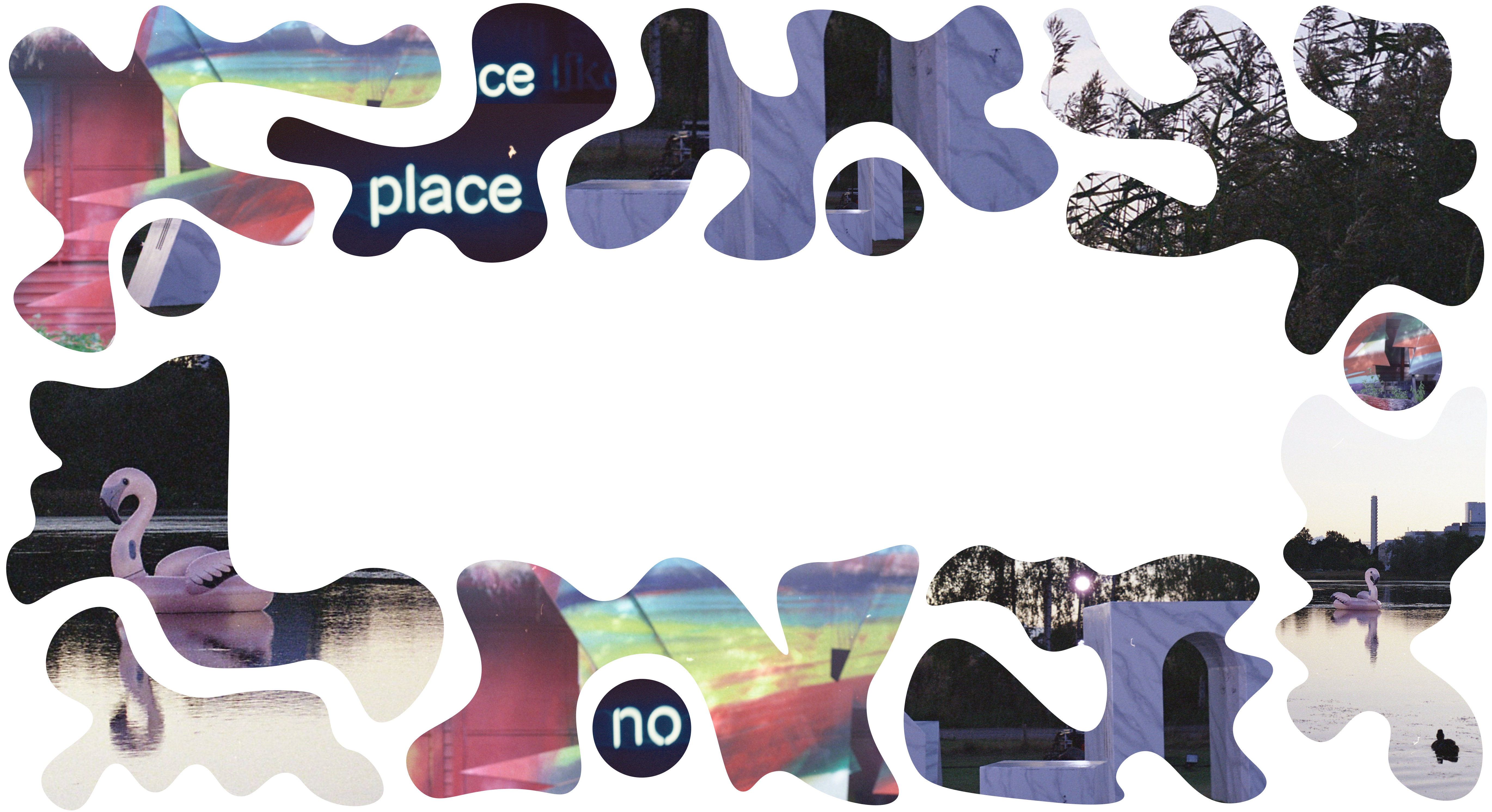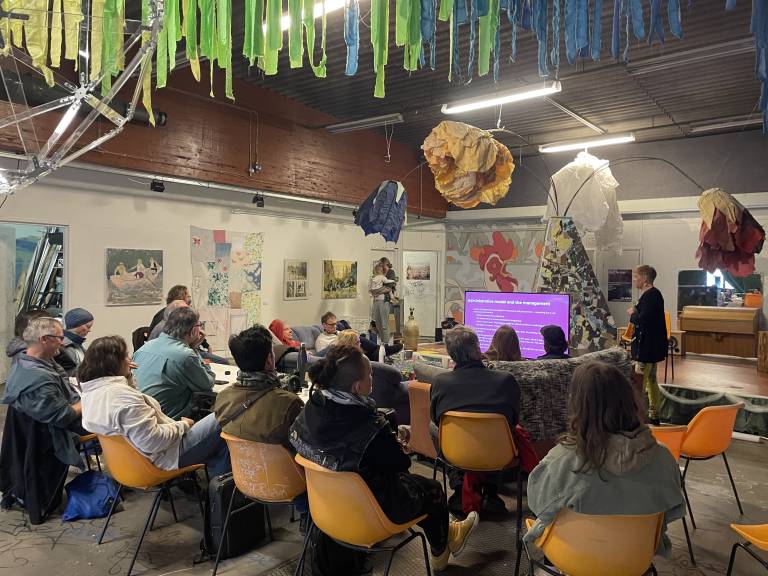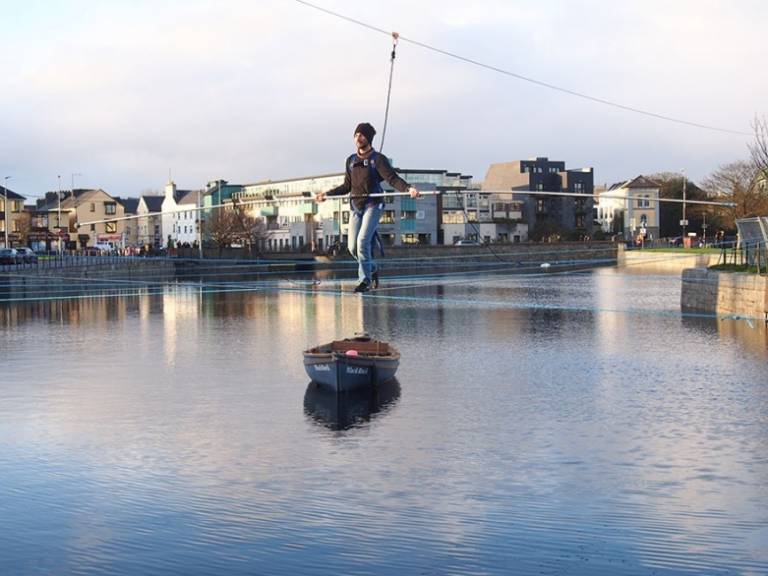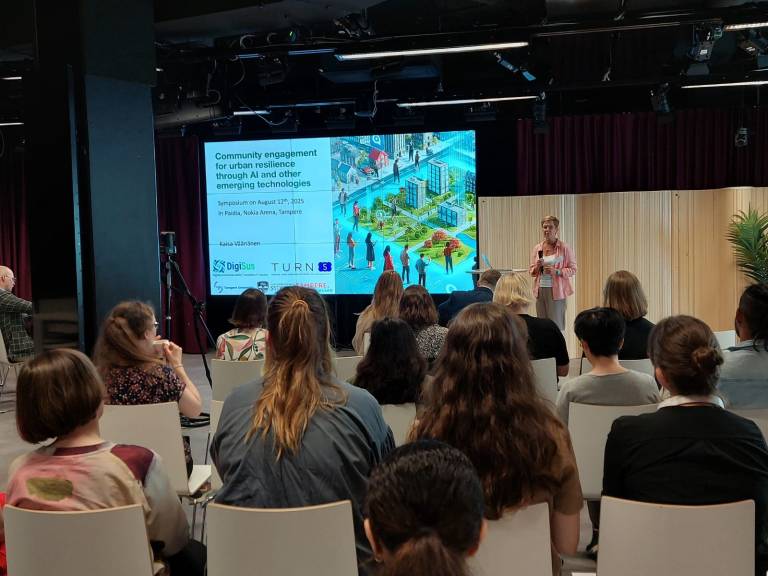TURNS-funding enabled the organization of the workshop “Civic Cities – Sustainable Cities” on 22 November 2024, in Helsinki’s new central city library Oodi. The aim of the workshop was to bring together scholars from different backgrounds and think together about how approaches from the humanities – and from literary studies, in particular – can contribute to our knowledge of how civic interaction takes place in contemporary urban communities, and how literary and narrative forms of dialogue can inform the necessary work to move towards more sustainable cities. The workshop was organized by Lieven Ameel, senior lecturer in comparative literature at Tampere University. The discussions were structured in such a way that they also contributed to his ERC bid, which touched on several of these themes.
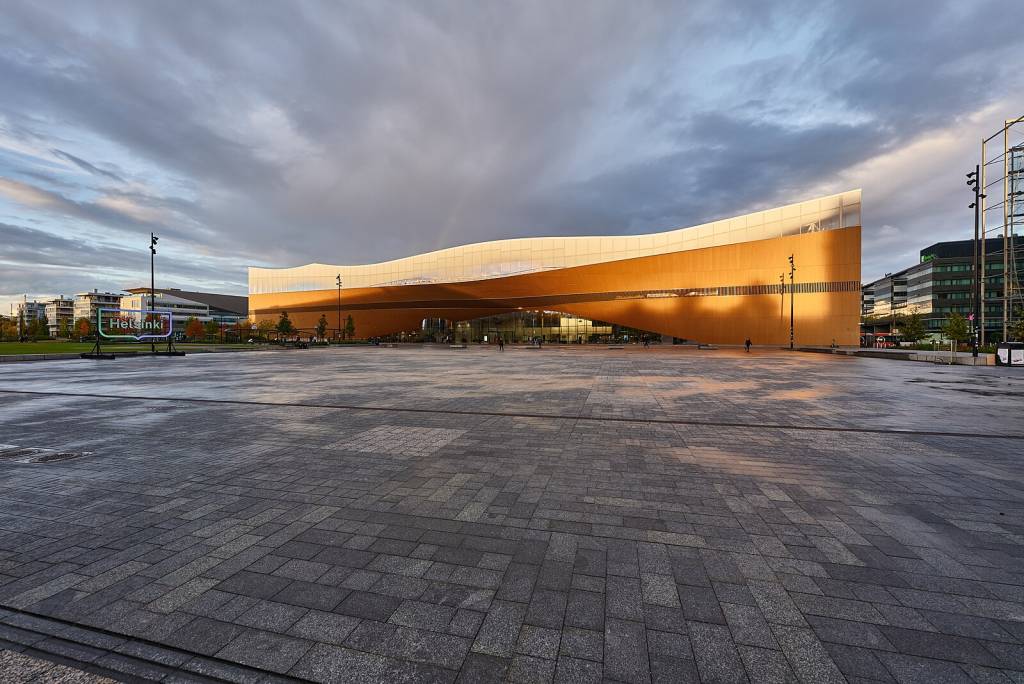
The workshop began informally on the previous day, 21 November, with a visit to “Puistokatu 4”. Puistokatu 4 is an inspiring example of a civic “third place”: it is an environment that operates on the level of community of researchers, artists, and more, and also as a convener for everyone “interested in participating in a more ecologically sustainable future”.
On 22 November, we began our workshop with a brief tour of Oodi. The morning session was kicked off with research presentations. Dr. Dominic Davies from City, University of London, presented recent work in the field of the “infrastructure humanities”, and his ongoing collaborations with activists, politicians, and urban communities. These include the recently founded “Thinking Through Infrastructure Network”, as well as collaborations with graphic artists in community engagement, in the context of energy shifts towards more sustainable cities. Dr. Irène Langlet from the University Gustave Eiffel, Paris, presented her work as head of PARVIS an interdisciplinary project that consisted in ‘studying representations of the future city, in order to identify the multifaceted futuristic urban imaginaries, particularly in terms of climate change’, with a research team of ‘a multidisciplinary group of researchers (literature, arts, social sciences, architecture, digital humanities) and civil society actors (NGOs working on climate framing)’. Langlet also introduced her current work on emerging literary genres such as climate fiction, and their relevance for thinking about more sustainable futures.
During lunch, two other participants briefly presented their work: Anna Kuutsa from Tampere University talked about her work (see more here) on literary dialogue and Natalya Bekhta, Academy research fellow at Tampere University, discussed her recent work (see more here) on topics including we-narratives, utopia, and world literature theory.
After lunch and a walk in the vicinity to give the visitors the opportunity to get a sense of the city, the workshop continued with a brainstorm on the basis of the ERC-COG research proposal presented by Lieven Ameel. Central to the discussion were questions around the methods and theory available to literary studies to examine the civic practices of contemporary urban communities towards more sustainable cities. At the background of this focus are several new and emerging research fields, including “literary urban studies”, the “infrastructural humanities”, but also the re-emergence of the “public humanities”, based “at the intersection of humanities scholarship and public life” (see more here).
The final part of the workshop considered concrete ways to cement the discussion of the day into concrete collaboration in the years to come.
The day ended with an invigorating sauna at Löyly, on the shore of the Baltic Sea.
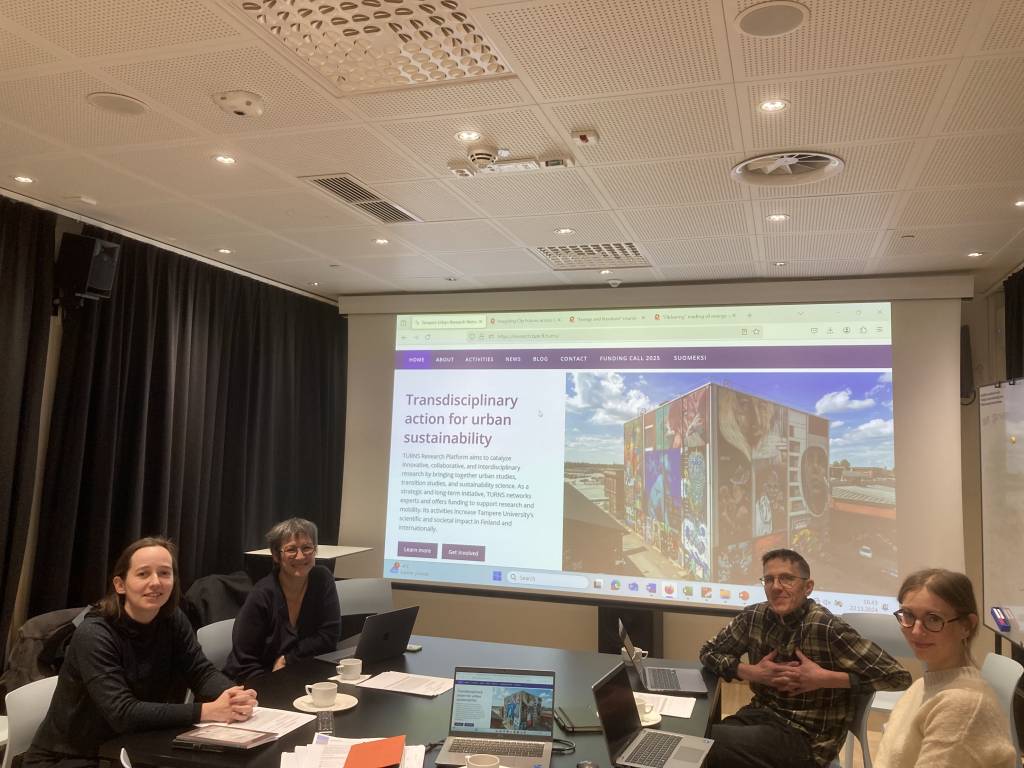
All in all, a hugely productive day. The schedule was kept light on purpose, with the aim to provide maximum time for open discussions and space for considering new perspectives and unexpected outcomes.
Many thanks to TURNS for making this workshop possible, and to all participants for donating one of the most precious resources in academic life: time!
Lieven Ameel is a senior lecturer in comparative literature at the Faculty of Social Sciences at Tampere University. He has published widely on experiences of space, narrative planning, and urban futures. His recent books include The Narrative Turn in Urban Planning (2020), and the Routledge Companion to Literary Urban Studies (2022). He is one of the editors of the Palgrave Series in Literary Urban Studies.

